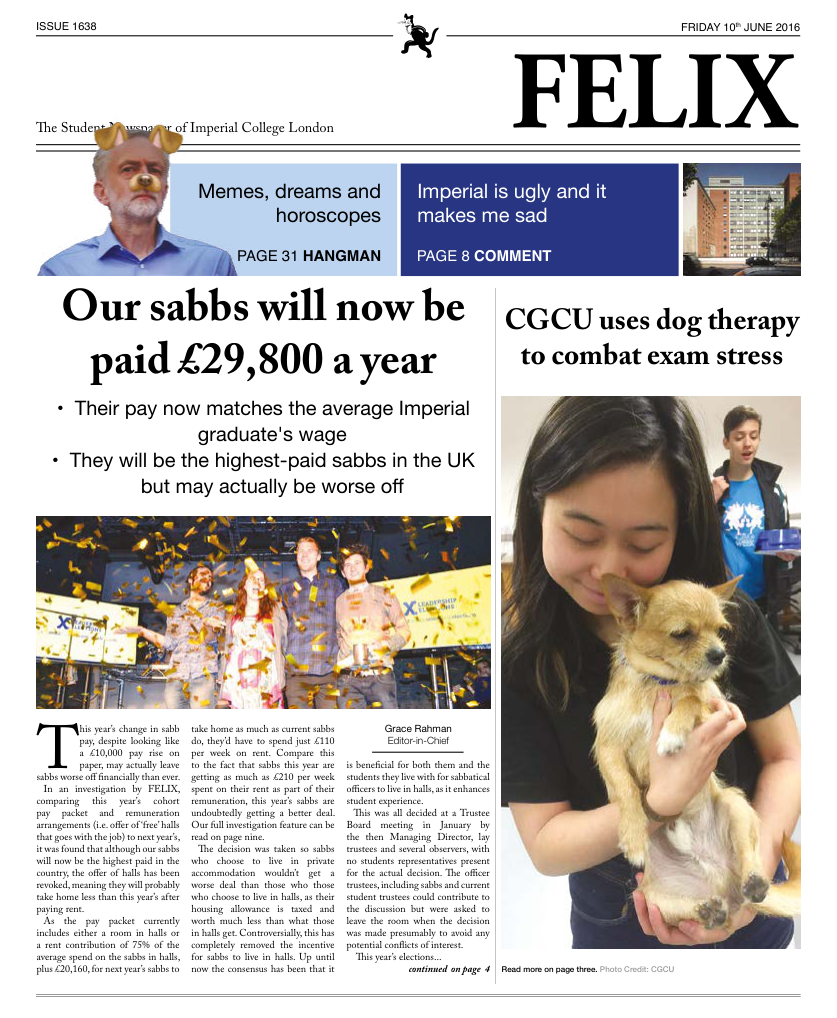Our sabbs will now be paid £29,800 a year
Their pay now matches the average Imperial graduate's wage

This year’s change in sabb pay, despite looking like a £10,000 pay rise on paper, may actually leave sabbs worse off financially than ever.
In an investigation by FELIX, comparing this year’s cohort pay packet and remuneration arrangements (i.e. offer of ‘free’ halls that goes with the job) to next year’s, it was found that although our sabbs will now be the highest paid in the country, the offer of halls has been revoked, meaning they will probably take home less than this year’s after paying rent.
As the pay packet currently includes either a room in halls or a rent contribution of 75% of the average spend on the sabbs in halls, plus £20,160, for next year’s sabbs to take home as much as current sabbs do, they’d have to spend just £110 per week on rent. Compare this to the fact that sabbs this year are getting as much as £210 per week spent on their rent as part of their remuneration, this year’s sabbs are undoubtedly getting a better deal. Our full investigation feature can be read on page nine.
The decision was taken so sabbs who choose to live in private accommodation wouldn’t get a worse deal than those who those who choose to live in halls, as their housing allowance is taxed and worth much less than what those in halls get. Controversially, this has completely removed the incentive for sabbs to live in halls. Up until now the consensus has been that it is beneficial for both them and the students they live with for sabbatical officers to live in halls, as it enhances student experience.
This was all decided at a Trustee Board meeting in January by the then Managing Director, lay trustees and several observers, with no students representatives present for the actual decision. The officer trustees, including sabbs and current student trustees could contribute to the discussion but were asked to leave the room when the decision was made presumably to avoid any potential conflicts of interest.
This year’s elections have already taken place, with all positions but the DPFS role having been filled (DPFS manifestos can be found on page fifteen). The pay rise and change of remuneration package was advertised in the 2016 Election Guide, so all candidates ran knowing about the new deal.
A union representative told FELIX: “ The Board of Trustees regularly review all aspects of remuneration for Officer Trustees and staff. In January the Board took the view that living in halls no longer represented part of the Officer Trustee role and as such opted to remove the previous penalty for living out of halls. Officer Trustees and full-time Officers are now paid a set point on the College’s pay scale and can opt to pay to live in halls should they wish”.







